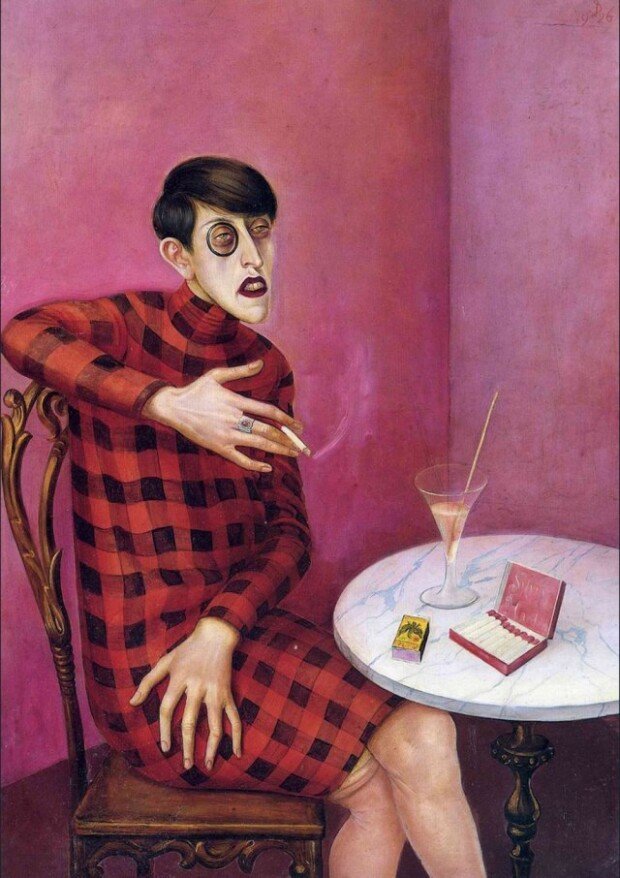Portrait depicting a woman of a new era
Portrait depicting a woman of a new era
Posted April. 22, 2021 07:27,
Updated April. 22, 2021 07:27

“I must paint you, I simply must!,” said Otto Dix after seeing a woman walking down the streets in Berlin one day in 1926. Her name was Sylvia von Harden, 32-year-old German journalist and poet. Why did Dix, remarkable artist of the 20th-century Germany, want to paint her so much?
The German painter tried to portray the madness, chaos, and corrupt politics in post-war Germany in an objective and realistic manner. The war had a major influence on his life and art. Having fought in World War l and had near-death experiences, Dix used the gruesome scenes he had witnessed on battlefields as the subject of his paintings. In his early career, Dix earned his fame as a portrait painter but later started to paint disabled war veterans, street prostitutes, and a variety of intellectuals.
The most famous among them is this portrait of the journalist. Short-haired Harden is crossing her legs and smoking a cigarette, sitting in front of a round table at a café in Berlin. Harden is wearing a red-and-black checkered dress that does not reveal her body shape. There are devices that symbolize masculinity, such as monocle, smoking, nicotine stained teeth, and stains between her fingers. She actually enjoyed drinks and cigarettes like her male journalists. She became nearsighted because she was busy writing without having the time to think of her appearances. She was not interested in getting married, either. Although she was a journalist, there are no notebooks on the table but a cocktail glass, cigarettes, and a box of matches. Her unfocused eyes, dark make-up, and frown on face imply the hardships of life and the dark political situation.
“Everything about you reflects this era,” said Dix when he asked Harden to be his model. Dix chose her because she was a new type of woman emerged in post-war German society, who refused to perform traditional femininity and was a human character representing a dark but changing era.







